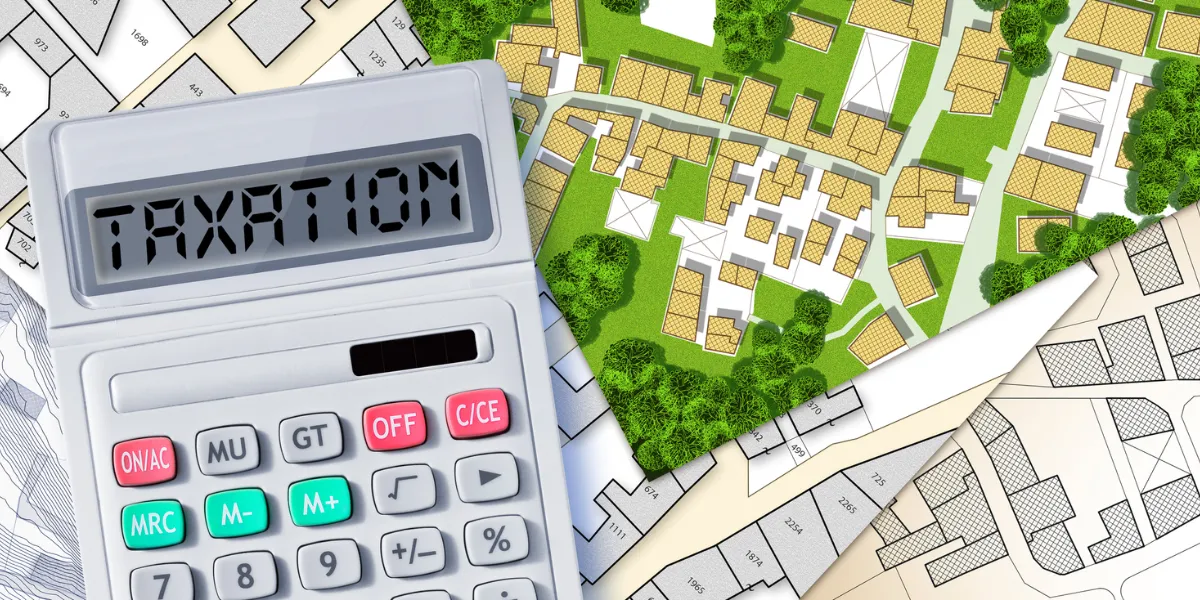All You Need To Know About The Land Transfer Tax In Canada anyone buying property in Canada. This tax is a one-time payment made by the buyer during the property transfer process. The LTT is imposed by provincial or municipal governments and is based on the property’s purchase price. Understanding the LTT can help you better prepare financially for your real estate transactions.
History and Purpose of Land Transfer Tax

The Land Transfer Tax was introduced as a way for governments to generate revenue necessary for funding public services and infrastructure projects. Its primary purpose is to support the financial needs of provincial and municipal governments. Historically, the LTT has played a significant role in balancing the financial requirements of local governments, ensuring that adequate funding is available for public amenities and services.
How is Land Transfer Tax Calculated?

The calculation of Land Transfer Tax varies by province but generally follows a similar principle: the tax amount is a percentage of the property’s purchase price. Most provinces use a sliding scale where the tax rate increases with the property’s value. For example, a property valued at $500,000 might have a different rate than one valued at $1,000,000. Understanding these rates and how they apply can help you estimate the cost accurately.
Provincial Variations in Land Transfer Tax
Different provinces have distinct rates and structures for Land Transfer Tax. For instance:
Ontario: Has a progressive rate system with higher rates for more expensive properties.
Alberta: Does not have a Land Transfer Tax but instead imposes a smaller Land Title Transfer Fee.
British Columbia: Similar to Ontario but with additional taxes for foreign buyers. Being aware of these variations can help you understand the potential costs depending on where you plan to buy property.
Municipal Land Transfer Tax: A Special Case for Toronto

Toronto is unique in Canada because it imposes an additional Municipal Land Transfer Tax on top of the provincial LTT. This means that buyers in Toronto pay a higher total transfer tax compared to other cities in Ontario. The municipal LTT follows a similar progressive structure but effectively doubles the amount paid. For instance, if you buy a property in Toronto, you will need to account for both the provincial and municipal LTT in your budget.
First-Time Homebuyer Rebates and Exemptions
Many provinces offer rebates and exemptions to first-time homebuyers to make purchasing a home more affordable. For example, in Ontario, first-time buyers can receive a rebate of up to $4,000 on the provincial LTT. These incentives are designed to reduce the financial burden on new buyers and encourage home ownership. It’s important to check the specific eligibility requirements and rebate amounts in your province.
Land Transfer Tax in Ontario

Ontario’s Land Transfer Tax is detailed and progressive. The rates range from 0.5% to 2.5%, depending on the property’s value. For instance, properties valued up to $55,000 are taxed at 0.5%, while those over $2,000,000 are taxed at 2.5%. Understanding these rates helps buyers anticipate the total tax payable and plan their finances accordingly.
Land Transfer Tax in British Columbia
British Columbia has a similar tiered LTT structure, with rates starting at 1% for the first $200,000 and going up to 3% for properties over $2,000,000. Additionally, BC imposes a speculation tax on foreign buyers to curb property speculation and vacancy. These additional considerations can significantly affect the total tax payable for property purchases in BC.
Land Transfer Tax in Quebec

In Quebec, the Land Transfer Tax is colloquially known as the “welcome tax.” It operates on a sliding scale with rates starting at 0.5% and increasing with the property’s value. Quebec’s thresholds and rates differ from other provinces, so it’s crucial to understand these specifics when planning a property purchase in Quebec.
Land Transfer Tax in Other Provinces
Other provinces, such as Manitoba, Saskatchewan, and the Atlantic provinces, each have their own LTT structures. For instance:
Manitoba: Charges 0.5% on the first $30,000 and progressively higher rates thereafter.
Nova Scotia: Has a deed transfer tax that varies by municipality. Reviewing the LTT rules in these provinces can provide a clearer picture of the costs associated with buying property across Canada.
Impact of Land Transfer Tax on Real Estate Market

The Land Transfer Tax can influence buyer behavior and market trends. High LTT rates may deter some buyers, especially in high-cost areas like Toronto. Conversely, rebates and exemptions can stimulate market activity among first-time homebuyers. Understanding the broader market impact of LTT helps buyers and sellers make informed decisions.
Strategies to Minimize Land Transfer Tax
There are several strategies to legally minimize Land Transfer Tax. These include:
Purchasing properties below certain price thresholds to qualify for lower tax rates.
Taking advantage of first-time homebuyer rebates and exemptions.
Consulting with real estate professionals to explore all available options. Implementing these strategies can help reduce the overall tax burden during property purchases.
Planning for Land Transfer Tax
Proper planning for Land Transfer Tax is essential for anyone looking to purchase property in Canada. This involves understanding the specific rules in your province, potential exemptions, and overall financial planning. By doing so, you can ensure a smoother property transaction and better manage your financial resources. Whether you are a first-time buyer or a seasoned investor, being informed about LTT can make a significant difference in your real estate journey.
Click here for more visited Posts!





Join The Discussion